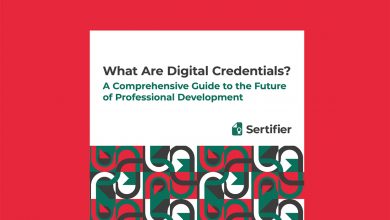Certificate vs Degree: Which One Should You Earn?
Table of Contents
The landscape of education and professional development has evolved significantly in recent years, presenting individuals with different choices and opportunities. As you contemplate your educational options, whether to pursue a certificate course or a degree may be a question weighing on your mind. Both paths offer their own set of benefits and considerations, and the decision ultimately hinges on your unique goals and preferences. However, understanding the factors in the certificate vs degree debate is essential to making an informed choice that aligns with your career aspirations.
The pursuit of a professional degree has been the hallmark of academic achievement and career advancement. The conventional learning pattern has long advocated for obtaining a degree from a recognized institution, as it offers comprehensive training and credentials that are widely respected in the job market. However, in recent years, there has been a discernible shift in perception, with digital certificates gaining traction as viable alternatives to traditional degrees. Employers and employees alike are increasingly recognizing the value of certifications, viewing them on par with professional degrees in certain contexts.
Whether you’re looking to enhance your skills, pivot to a new career, or advance in your current profession, understanding the certificates and degrees better will empower you to cherish your career goals and aspirations. When deciding between pursuing a certificate or a degree, it is crucial to understand the various aspects that differentiate these two educational paths.
Time Commitment

The distinction in time commitment between the certificate vs degree programs debate significantly influences the choice of educational pathway, depending on individual career goals and life circumstances. Certificates can quickly enhance one’s qualifications and fit well with individuals needing specific skills for immediate job opportunities or career changes. Degrees, while requiring a longer commitment, offer a broader educational base, essential for career paths that demand higher levels of education
Certificates
Certificates are designed to be completed in a shorter timeframe, which can range from a few months to a couple of years. This condensed time period is due to the focused nature of certificate programs, which aim to deliver specific skills or knowledge that are directly applicable to a particular job or industry. This makes certificates especially attractive for those looking to quickly transition into a new career field or upgrade their existing skills without a lengthy educational commitment.
Degrees
In contrast, degree programs require a more substantial time investment. Associate degrees typically take two years to complete, bachelor’s degrees usually require four years, and graduate degrees (master’s and doctorate) can take anywhere from two to several years, depending on the field of study and the structure of the program. The longer duration of degree programs is due to their comprehensive curriculum, which covers a broad range of subjects and aims to provide a well-rounded education that prepares students for a variety of professional roles.
Requirements for Enrollment

When considering enrollment in educational programs, the prerequisites for certificates vs degrees show notable differences that align with the distinct goals and structures of each pathway. Certificates offer a practical and accessible route for those seeking to quickly enhance their skills or change careers without the need for a lengthy and more formal educational process. Degrees, on the other hand, are suited for individuals looking for a comprehensive education
Certificates
Certificate programs often have more flexible entry requirements. Some may require a high school diploma or equivalent, while others might not require any formal educational background at all. This accessibility makes certificate programs appealing to a broad audience, including those who are already working professionals looking to enhance their skills, as well as individuals who are seeking to enter the workforce quickly.
Degrees
Degree programs, on the other hand, generally have stricter admission requirements. For entry-level associate or bachelor’s degrees, applicants typically need to have completed high school and, in many cases, must also submit standardized test scores. For more advanced studies, such as master’s or doctoral programs, candidates are usually expected to have completed an undergraduate degree and sometimes meet additional criteria, such as passing entrance exams or having a certain amount of professional experience.
Curriculum Scope and Depth

When evaluating the educational pathways available for career advancement or entry, the curriculum’s scope and depth play a pivotal role in determining the suitability of certificate vs degree programs.
Certificates
The curriculum in certificate programs is highly specialized and designed to develop the core skills needed for specific jobs. These programs often bypass broader educational subjects in favor of intensive, practical training in targeted areas. This approach not only makes the training period shorter but also ensures that students gain the precise skills needed for specific roles or tasks within their chosen fields.
Degrees
Degree programs offer a more extensive and varied curriculum that covers a wide range of subjects. This broader educational scope is intended to equip students with a diverse set of skills and knowledge, preparing them for a wide array of challenges and roles in their future careers. Degree curricula often include general education courses, such as humanities and
sciences, which are designed to provide students with a well-rounded educational background. This comprehensive approach to learning helps develop critical thinking, communication, and analytical skills that are valuable across many different professions.
Costs

The overall cost of educational programs is a critical consideration when it comes to the certificate vs degree consideration, as financial implications directly affect accessibility and feasibility for many students. Certificates can provide a quick and relatively affordable way to gain specific skills or transition into a new career field. In contrast, degrees represent a long-term investment.
Certificates
Certificate programs typically incur lower costs compared to degree programs. This affordability stems largely from their focused curriculum and shorter duration, which reduce the total tuition fees and associated costs. Since certificate programs concentrate on specific skills or job roles, they require fewer courses and less time to complete, minimizing expenses like textbooks, supplementary materials, and other fees related to broader university services. Additionally, the flexible nature of many certificate courses—often available online—can further decrease costs related to commuting or housing that are more commonly associated with traditional degree programs.
Degrees
Degree programs, on the other hand, involve a more significant financial commitment due to their comprehensive nature and longer duration. The cost of obtaining a degree includes not only tuition but also fees for using university infrastructure and amenities, which contribute to
the overall educational experience but also add to the financial burden. Degree programs encompass a wide variety of subjects, requiring a broader range of courses over several years, which significantly increases tuition and associated costs. Furthermore, degree-seeking students may face additional expenses for living on or commuting to campus, purchasing a wide array of textbooks, and participating in extra-curricular activities that enhance their educational journey.
Navigating the Future: Degrees vs Certifications in 2024

As the professional world evolves and specialized skills become increasingly critical, the choice between pursuing certifications or traditional degrees is becoming more relevant in 2024. With the escalating costs associated with obtaining traditional degrees, certifications are gaining popularity as a cost-effective alternative that offers specific skill training and flexible learning options. Particularly in rapidly advancing fields such as blockchain, artificial intelligence, and cybersecurity, certifications are expected to be in high demand, providing essential skills that align closely with industry needs.
Meanwhile, traditional degrees continue to hold indispensable value in sectors such as medicine, engineering, and law, where a deep and comprehensive knowledge base is essential. These fields typically require a thorough understanding that only a traditional academic degree can provide. However, educational institutions are beginning to adapt by integrating certification programs within traditional degree frameworks, offering a hybrid educational model that benefits students.
This integration allows learners to acquire specialized skills while also pursuing a broader academic degree, effectively preparing them for a diverse range of career paths. Looking forward, the educational landscape will likely embrace a more blended approach, combining the strengths of both certifications and degrees to meet the dynamic needs of the job market. As we move into 2024 and beyond,
individuals need to carefully evaluate their career aspirations and financial capabilities to choose the educational path that best aligns with their goals, ensuring they remain competitive and well-prepared for future opportunities.



